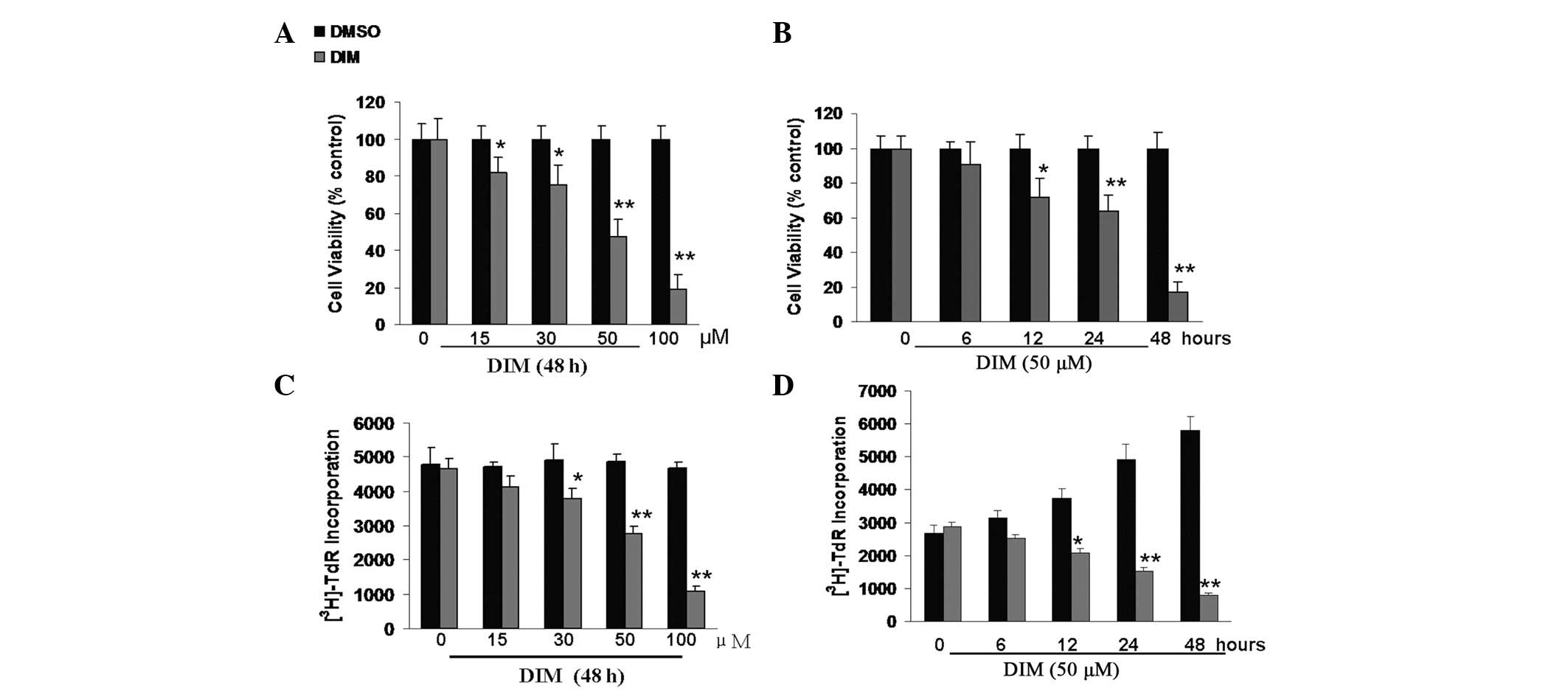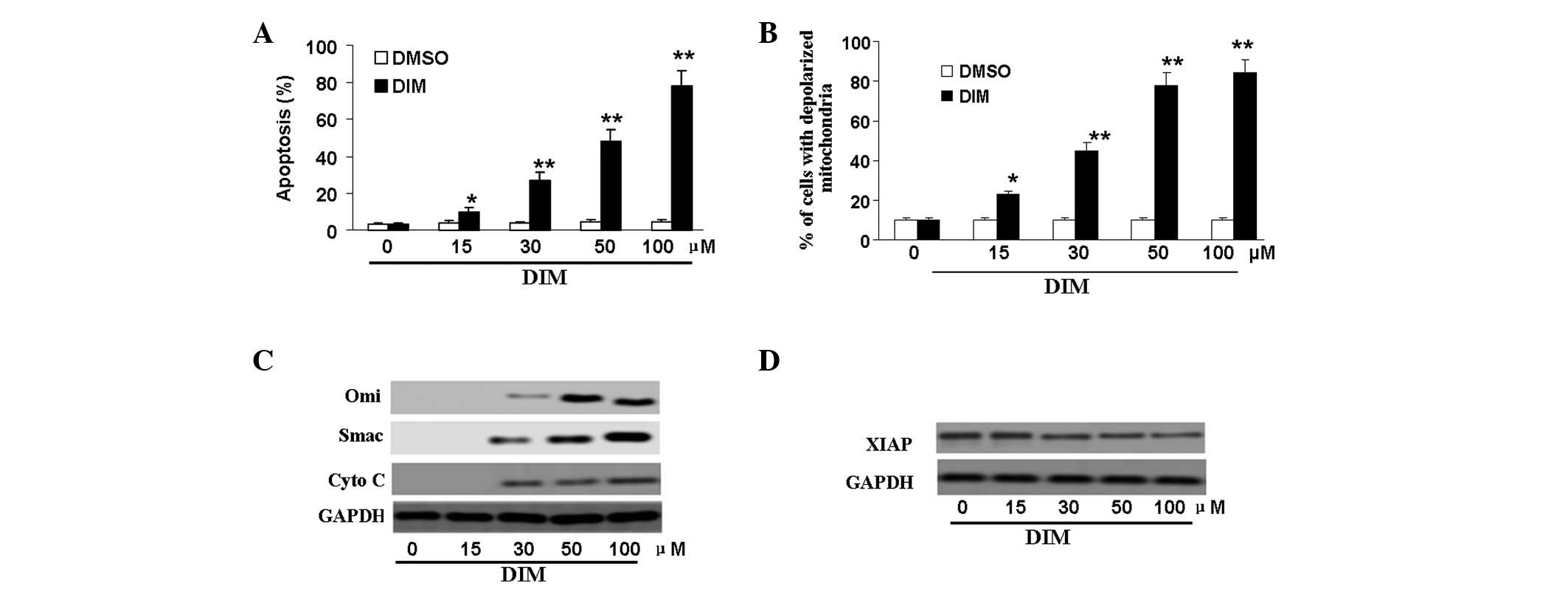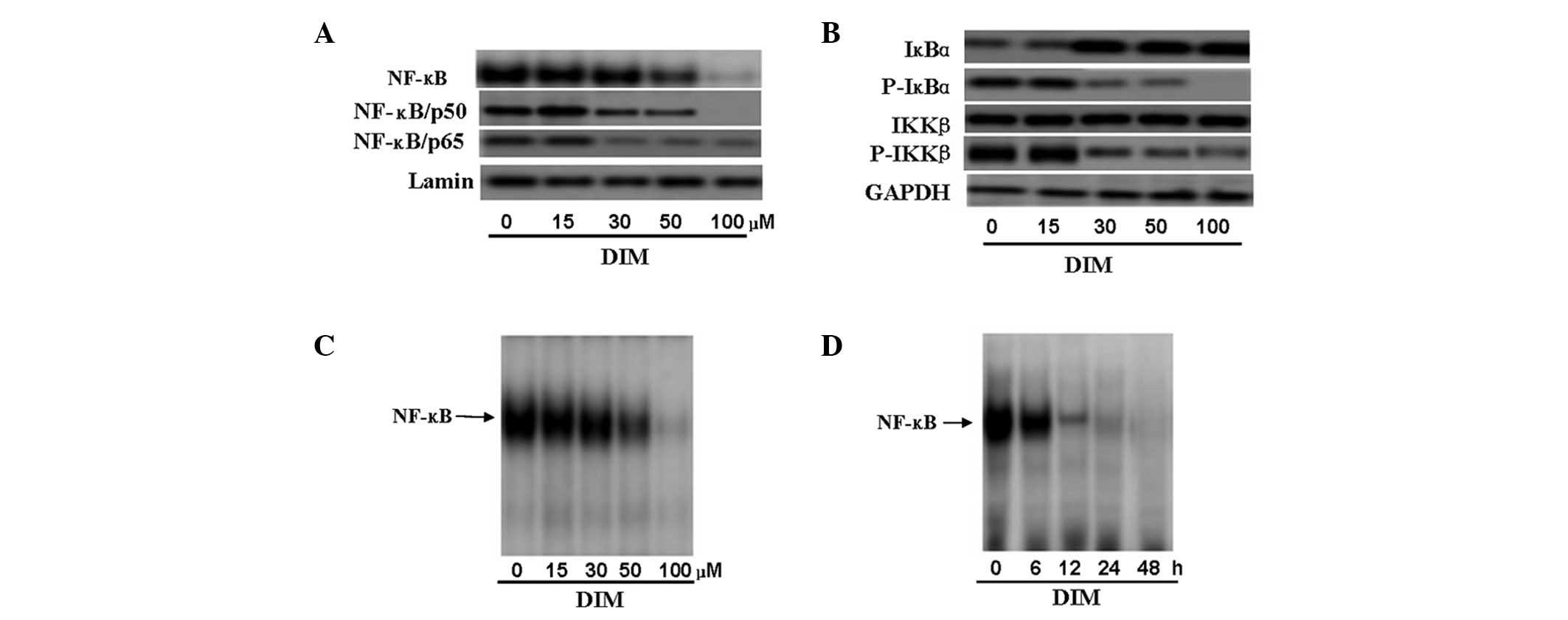|
1.
|
Cho WC: Nasopharyngeal carcinoma:
molecular biomarker discovery and progress. Mol Cancer. 6:12007.
View Article : Google Scholar : PubMed/NCBI
|
|
2.
|
Marks JE, Phillips JL and Menck HR: The
National Cancer Data Base report on the relationship of race and
national origin to the histology of nasopharyngeal carcinoma.
Cancer. 83:582–588. 1998. View Article : Google Scholar : PubMed/NCBI
|
|
3.
|
Busson P, Keryer C, Ooka T and Corbex M:
EBV-associated nasopharyngeal carcinomas: from epidemiology to
virus-targeting strategies. Trends Microbiol. 12:356–360. 2004.
View Article : Google Scholar : PubMed/NCBI
|
|
4.
|
Scott EN, Gescher AJ, Steward WP and Brown
K: Development of dietary phytochemical chemopreventive agents:
biomarkers and choice of dose for early clinical trials. Cancer
Prev Res (Phila). 2:525–530. 2009. View Article : Google Scholar : PubMed/NCBI
|
|
5.
|
Tan AC, Konczak I, Sze DM and Ramzan I:
Molecular pathways for cancer chemoprevention by dietary
phytochemicals. Nutr Cancer. 63:495–505. 2011. View Article : Google Scholar : PubMed/NCBI
|
|
6.
|
Sarkar FH, Li Y, Wang Z and Kong D:
Cellular signaling perturbation by natural products. Cell Signal.
21:1541–1547. 2009. View Article : Google Scholar : PubMed/NCBI
|
|
7.
|
Xu Y, Zhang J and Dong WG:
Indole-3-carbinol (I3C)-induced apoptosis in nasopharyngeal cancer
cells through Fas/FasL and MAPK pathway. Med Oncol. 28:1343–1348.
2011. View Article : Google Scholar : PubMed/NCBI
|
|
8.
|
Grose KR and Bjeldanes LF: Oligomerization
of indole-3-carbinol in aqueous acid. Chem Res Toxicol. 5:188–193.
1992. View Article : Google Scholar : PubMed/NCBI
|
|
9.
|
Bradlow HL and Zeligs MA: Diindolylmethane
(DIM) spontaneously forms from indole-3-carbinol (I3C) during cell
culture experiments. In Vivo. 24:387–391. 2010.PubMed/NCBI
|
|
10.
|
Garikapaty VP, Ashok BT, Tadi K, Mittelman
A and Tiwari RK: 3,3′-Diindolylmethane downregulates pro-survival
pathway in hormone independent prostate cancer. Biochem Biophys Res
Commun. 340:718–725. 2006.
|
|
11.
|
Nachshon-Kedmi M, Yannai S and Fares FA:
Induction of apoptosis in human prostate cancer cell line, PC3, by
3,3′-diindolylmethane through the mitochondrial pathway. Br J
Cancer. 91:1358–1363. 2004.
|
|
12.
|
Rahman KW and Sarkar FH: Inhibition of
nuclear translocation of nuclear factor-{kappa}B contributes to
3,3′-diindolylmethane-induced apoptosis in breast cancer cells.
Cancer Res. 65:364–371. 2005.
|
|
13.
|
Hong C, Kim HA, Firestone GL and Bjeldanes
LF: 3,3′-Diindolylmethane (DIM) induces a G(1) cell cycle arrest in
human breast cancer cells that is accompanied by Sp1-mediated
activation of p21 (WAF1/CIP1) expression. Carcinogenesis.
23:1297–1305. 2002.
|
|
14.
|
Kim EJ, Park SY, Shin HK, Kwon DY, Surh YJ
and Park JH: Activation of caspase-8 contributes to
3,3′-Diindolylmethane-induced apoptosis in colon cancer cells. J
Nutr. 137:31–36. 2007.
|
|
15.
|
Weng JR, Bai LY, Chiu CF, Wang YC and Tsai
MH: The dietary phytochemical 3,3′-diindolylmethane induces G2/M
arrest and apoptosis in oral squamous cell carcinoma by modulating
Akt-NF-κB, MAPK, and p53 signaling. Chem Biol Interact.
195:224–230. 2012.
|
|
16.
|
Adams JM: Ways of dying: multiple pathways
to apoptosis. Genes Dev. 17:2481–2495. 2003. View Article : Google Scholar : PubMed/NCBI
|
|
17.
|
Hengartner MO: The biochemistry of
apoptosis. Nature. 407:770–776. 2000. View
Article : Google Scholar : PubMed/NCBI
|
|
18.
|
Tavani A and La Vecchia C: Fruit and
vegetable consumption and cancer risk in a Mediterranean
population. Am J Clin Nutr. 61(6 Suppl): 1374S–1377S.
1995.PubMed/NCBI
|
|
19.
|
Wang ZB, Liu YQ and Cui YF: Pathways to
caspase activation. Cell Biol Int. 29:489–496. 2005. View Article : Google Scholar : PubMed/NCBI
|
|
20.
|
Cohen JH, Kristal AR and Stanford JL:
Fruit and vegetable intakes and prostate cancer risk. J Natl Cancer
Inst. 92:61–68. 2000. View Article : Google Scholar : PubMed/NCBI
|
|
21.
|
Bradfield CA and Bjeldanes LF:
Structure-activity relationships of dietary indoles: a proposed
mechanism of action as modifiers of xenobiotic metabolism. J
Toxicol Environ Health. 21:311–323. 1987. View Article : Google Scholar : PubMed/NCBI
|
|
22.
|
Choi HJ, Lim do Y and Park JH: Induction
of G1 and G2/M cell cycle arrests by the dietary compound
3,3′-diindolylmethane in HT-29 human colon cancer cells. BMC
Gastroenterol. 9:392009.PubMed/NCBI
|
|
23.
|
Hanahan D and Weinberg RA: Hallmarks of
cancer: the next generation. Cell. 144:646–674. 2011. View Article : Google Scholar : PubMed/NCBI
|
|
24.
|
Thorburn A: Death receptor-induced cell
killing. Cell Signal. 16:139–144. 2004. View Article : Google Scholar
|
|
25.
|
Liu X, Kim CN, Yang J, Jemmerson R and
Wang X: Induction of apoptotic program in cell-free extracts:
requirement for dATP and cytochrome c. Cell. 86:147–157. 1996.
View Article : Google Scholar : PubMed/NCBI
|
|
26.
|
Von Ahsen O, Waterhouse NJ, Kuwana T,
Newmeyer DD and Green DR: The ‘harmless’ release of cytochrome c.
Cell Death Differ. 7:1192–1199. 2000.
|
|
27.
|
Zamzami N, Marchetti P, Castedo M, et al:
Reduction in mitochondrial potential constitutes an early
irreversible step of programmed lymphocyte death in vivo. J Exp
Med. 181:1661–1672. 1995. View Article : Google Scholar : PubMed/NCBI
|
|
28.
|
Chao DT and Korsmeyer SJ: BCL-2 family:
regulators of cell death. Annu Rev Immunol. 16:395–419. 1998.
View Article : Google Scholar
|
|
29.
|
Yip KW and Reed JC: Bcl-2 family proteins
and cancer. Oncogene. 27:6398–6406. 2008. View Article : Google Scholar : PubMed/NCBI
|
|
30.
|
Karin M, Cao Y, Greten FR and Li ZW:
NF-kappaB in cancer: from innocent bystander to major culprit. Nat
Rev Cancer. 2:301–310. 2002. View
Article : Google Scholar : PubMed/NCBI
|
|
31.
|
Wang CY, Mayo MW, Korneluk RG, Goeddel DV
and Baldwin AS Jr: NF-κB antiapoptosis: induction of TRAF1 and
TRAF2 and c-IAP1 and c-IAP2 to suppress caspase-8 activation.
Science. 281:1680–1683. 1998.
|



















